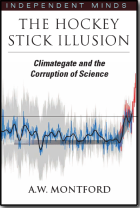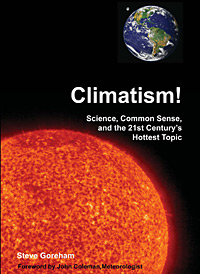In Defence of ‘Heaven and Earth’ (Part 2) June 21, 2009
Posted by honestclimate in Discussions.Tags: climate change, global warming, Heaven and Earth, Professor Ian Plimer
trackback
In Defence of ‘Heaven and Earth’ (Part 2)
Jennifer Marohasy blog, June 19, 2009
DON Aitkin, a former member of the Australian Science and Technology Council and Foundation Chairman of the Australian Research Council, wrote to Kurt Lambeck, President of the Australian Academy of Sciences, concerning his public criticism of Ian Plimer’s new book Heaven and Earth. Professor Aitkin waited ten days for a response, and, in its absence, has decided to release his letter more widely.
Date: Sun, Jun 7 2009 7:03 pm
From: Don Aitkin
Dear Kurt,
It was a coincidence that I started to write a set of comments about your review of Ian Plimer’s book when The Canberra Times told me of your Queen’s Birthday honour, for which I congratulate you. I’ll make a further tiny comment about that at the end.
I didn’t hear your talk, but I have read the transcript, and make some comments about it, given Robyn Williams’ remark, in introducing you, that ‘the stakes couldn’t be higher’. I might have simply read, shrugged and passed on, had it not been for your comment that ‘Heaven and Earth is not a work of science, it is an opinion of an author who happens to be a scientist’. I puzzled over that line. It’s the kind of remark I would make about the IPCC authors’ statement that they were 99 per cent certain, or whatever the figure was, that the warming we were having was the result of human activity. That was not science, if you will allow me to say so. It was the opinion of scientists. My own feeling is that the claim would have been better expressed as ‘We are pretty sure that…’
Indeed, the IPCC reports, the last two of which I have read, seem to me very similar, in that respect, to ‘Heaven and Earth’. There is abundant use of refereed journal articles, and that’s fine. The science there described is used for the purposes of the IPCC. And that’s fine too. We use what others have done for our own purposes. What then distinguishes the 4AR from Heaven and Earth? Ian Plimer uses what he can find to build a case, and so do the IPCC authors. Both think they are right. I can’t myself see a difference.
I agree with you (and I am sure that Ian Plimer would too) that ‘climate change’ is such a complex process that no single individual can do the work necessary to explain it all. But that is why we use the work of others, knowing that we cannot do everything, but hoping that we have made a contribution — and knowing also that later someone else will come and show faults in what we have done. I see no reason to suppose that the IPCC process is necessary, and you have quite frankly recognised some of the faults in it. There are many others, and they don’t give me great confidence in the output.
Nor do I see any need for consensus — and that is the second remark you made that prompted this comment. As I see it, science is never about reaching consensus — that’s a political process. Science is about formulating hypotheses and testing them experimentally. Inasmuch as there is consensus about anything (the kind that allows textbooks to be written) it too is understood to be subject to review and dislodgment if the evidence points elsewhere. And Plimer’s book offers abundant examples of that kind of evidence.
Read the rest here

































The problem is a bit more complex here than building hypotheses and testing them experimentally, as with climate change, you are dealing with time and so largely with the past. That cannot be tested experimentally as it cannot be reconstructed. So you look at as much evidence as you can find and then you guess what it all means.
No-one has yet interviewed a trilobite personally.
Ian Plimer and the authors of the 2,311 papers he refers to and builds his case on, seem to me to have done that job far better than the IPCC. I think they almost all missed the geomagnetic shifts, but that is beside the point here. Some of the authors to whose work Plimer has referred have and will object to his interpretations and use of their work, but that is how science works. Someone reports data and all are free to interpret it to suit
You cannot really prove or refute anything in geology, you just debate it and then folk go with the best guess. Every new drill hole makes the picture just that more complex.